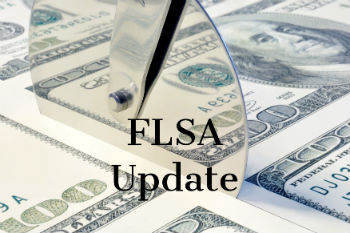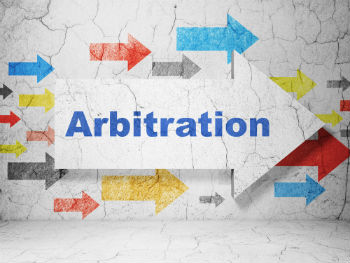 Employees in California are protected by the Workers’ Compensation Act (WCA) which governs “compensation given to California employees for injuries incurred in the course and scope of their employment.” Charles J. Vacanti, M.D., Inc. v. State Comp. Ins. Fund (2001) 24 Cal.4th 800, 810. All employers except the state must secure the payments of compensation by either carrying workers’ compensation insurance or self-insuring. In a recent case, the San Mountain Empire School District was self-insured, but had also contracted for excess policy insurance. In the case of the Mountain Empire School District, its excess insurer ran out of money.
Employees in California are protected by the Workers’ Compensation Act (WCA) which governs “compensation given to California employees for injuries incurred in the course and scope of their employment.” Charles J. Vacanti, M.D., Inc. v. State Comp. Ins. Fund (2001) 24 Cal.4th 800, 810. All employers except the state must secure the payments of compensation by either carrying workers’ compensation insurance or self-insuring. In a recent case, the San Mountain Empire School District was self-insured, but had also contracted for excess policy insurance. In the case of the Mountain Empire School District, its excess insurer ran out of money.
California law also provides for protection to both “insured and the public” through a system called the California Insurance Guarantee Association (CIGA). Fireman’s Fund Ins. Co. v. Workers Comp. Appeals Bd. (2010) 189 Cal.App.4th 101, 111-112. CIGA pays only: 1) covered claims and 2) claims for which neither a solvent insurer or self-insured employer is jointly and severally liable.



 In a purchase and sale context, California law requires the seller of residential real estate to disclose material facts affecting the value or desirability of the property, “if it is known that such facts are not known to or within the reach of the diligent attention and observation of a buyer.” Calemine v. Samuelson, 171 Cal. App. 4th 153, 161-62 (2009). A fact is material if it has an effect on the value or desirability of the property. Alfaro v. Cmty. Hous. Improvement Sys. & Planning Ass'n, Inc., 171 Cal. App. 4th 1356, 1382 (2009).
In a purchase and sale context, California law requires the seller of residential real estate to disclose material facts affecting the value or desirability of the property, “if it is known that such facts are not known to or within the reach of the diligent attention and observation of a buyer.” Calemine v. Samuelson, 171 Cal. App. 4th 153, 161-62 (2009). A fact is material if it has an effect on the value or desirability of the property. Alfaro v. Cmty. Hous. Improvement Sys. & Planning Ass'n, Inc., 171 Cal. App. 4th 1356, 1382 (2009). Recently in the news we have seen articles about people traveling with their miniature horses or their pigs. Perhaps you may be wondering why is the airline permitting the miniature horse on the plane? The answer breaks down like this: if it is a miniature horse, it is likely a service animal and if it is a pig, it is likely an emotional support animal.
Recently in the news we have seen articles about people traveling with their miniature horses or their pigs. Perhaps you may be wondering why is the airline permitting the miniature horse on the plane? The answer breaks down like this: if it is a miniature horse, it is likely a service animal and if it is a pig, it is likely an emotional support animal. In California, a landowner has no enforceable property rights to an unobstructed view. That means, you can’t force your downhill neighbor to trim their trees. However, I have seen the occasional CC&R’s from planned communities that restrict heights of trees, plantings, and structures to ensure that the homeowners can enjoy their view.In those circumstances, the restrictive covenants are strictly construed against the person seeking to enforce them. American jurisprudence favors alienability and free use of land so that will be the default legal view.
In California, a landowner has no enforceable property rights to an unobstructed view. That means, you can’t force your downhill neighbor to trim their trees. However, I have seen the occasional CC&R’s from planned communities that restrict heights of trees, plantings, and structures to ensure that the homeowners can enjoy their view.In those circumstances, the restrictive covenants are strictly construed against the person seeking to enforce them. American jurisprudence favors alienability and free use of land so that will be the default legal view. In a recent opinion, the California Court of Appeal found that after foreclosure, all of the borrower’s leases (and its waivers) were assigned to the lender, and therefore unavailable as a defense to the former owner against a creditor. Therefore, the judgment creditor was successfully able to add two new parties to the judgment as the limitation the lease no longer shielded them.
In a recent opinion, the California Court of Appeal found that after foreclosure, all of the borrower’s leases (and its waivers) were assigned to the lender, and therefore unavailable as a defense to the former owner against a creditor. Therefore, the judgment creditor was successfully able to add two new parties to the judgment as the limitation the lease no longer shielded them. In the recent case of Southern California Edison Company v. Severns, the written easement described a 4 foot wide easement for the placement of five electrical power poles. The instrument went on further to provide that the grantee should have “free access” to maintain the electrical equipment. This created dispute between the grantor and the utility company because of the unspecified routes the utility company would take on the grantor’s property to access the easement. The court determined that the easement was in fact a “floating easement”.
In the recent case of Southern California Edison Company v. Severns, the written easement described a 4 foot wide easement for the placement of five electrical power poles. The instrument went on further to provide that the grantee should have “free access” to maintain the electrical equipment. This created dispute between the grantor and the utility company because of the unspecified routes the utility company would take on the grantor’s property to access the easement. The court determined that the easement was in fact a “floating easement”. California’s Fourth Appellate District came down with an unsurprising opinion that because a real estate broker has a duty to their principal to share information he or she possesses that will adversely affect the value of her property, an expert opinion is not required to establish breach of that duty.
California’s Fourth Appellate District came down with an unsurprising opinion that because a real estate broker has a duty to their principal to share information he or she possesses that will adversely affect the value of her property, an expert opinion is not required to establish breach of that duty. Continuing the trend in California caselaw, an appellate court concluded that no, the trustee does not have duties beyond the deed of trust itself and the governing statutes.
Continuing the trend in California caselaw, an appellate court concluded that no, the trustee does not have duties beyond the deed of trust itself and the governing statutes. It is well-settled California law that land owners are required to maintain land in their possession and control in a reasonably safe condition. California courts look to what are called the “Rowland factors” to evaluate if a duty is owed beyond the principles of Civil Code section 1714:
It is well-settled California law that land owners are required to maintain land in their possession and control in a reasonably safe condition. California courts look to what are called the “Rowland factors” to evaluate if a duty is owed beyond the principles of Civil Code section 1714: In the recent case of RANCH AT THE FALLS, LLC v. Keith O’Neal et al., a ranch owner tried to establish prescriptive or equitable easement rights along private roads to reach her ranch. Ms. Hart prevailed at the trial court level but was not so fortunate on appeal. California’s second Appellate District concluded that Ms. Hart had failed to meet the hostility requirement to establish prescriptive easement.
In the recent case of RANCH AT THE FALLS, LLC v. Keith O’Neal et al., a ranch owner tried to establish prescriptive or equitable easement rights along private roads to reach her ranch. Ms. Hart prevailed at the trial court level but was not so fortunate on appeal. California’s second Appellate District concluded that Ms. Hart had failed to meet the hostility requirement to establish prescriptive easement. The Ninth Circuit has expanded the scope of claims that are subject to arbitration clauses to include racial discrimination claims under 42 U.S.C. Section 1981. Lambert v. Tesla, 2019 U.S. App. LEXIS 14591.
The Ninth Circuit has expanded the scope of claims that are subject to arbitration clauses to include racial discrimination claims under 42 U.S.C. Section 1981. Lambert v. Tesla, 2019 U.S. App. LEXIS 14591. Neighbor disputes over shared boundaries can arise over a misplaced fence, a shared driveway, or water rights. These claims are heavily fact-based and often the accuracy of the modern survey can only be overcome with meeting the elements for adverse possession or prescriptive easement.
Neighbor disputes over shared boundaries can arise over a misplaced fence, a shared driveway, or water rights. These claims are heavily fact-based and often the accuracy of the modern survey can only be overcome with meeting the elements for adverse possession or prescriptive easement. After the subprime meltdown, sweeping legislation was enacted in an effort to protect Californian homeowners. HBOR cases have since trickled in over the last seven years with a new one regarding fees for borrowers who successfully halt a
After the subprime meltdown, sweeping legislation was enacted in an effort to protect Californian homeowners. HBOR cases have since trickled in over the last seven years with a new one regarding fees for borrowers who successfully halt a  Owners who take title via a foreclosure sale must perfect their title before beginning eviction proceedings. This may seem obvious, but the issue was unresolved in California until just a couple of weeks ago.
Owners who take title via a foreclosure sale must perfect their title before beginning eviction proceedings. This may seem obvious, but the issue was unresolved in California until just a couple of weeks ago.  California real estate brokers are required to have a written contract with their clients to list a property for sale. A real estate commission is usually a percentage of the transaction, and with multi-million dollar San Francisco Bay area real estate values, the commission is often five or six figures.
California real estate brokers are required to have a written contract with their clients to list a property for sale. A real estate commission is usually a percentage of the transaction, and with multi-million dollar San Francisco Bay area real estate values, the commission is often five or six figures.  In California, real estate often has multiple owners due to investment structure or inheritance of family property.
In California, real estate often has multiple owners due to investment structure or inheritance of family property. After the subprime meltdown, California enacted the Homeowner’s Bill of rights (HBOR) to amend the non-judicial foreclosure processes. Among the changes were to bar “dual-tracking” and require a 30 day pre-foreclosure communication period. Those changes sunset in 2019. SB818 reinstates certain provisions of the HBOR and Governor Jerry Brown signed the bill a few weeks ago. Most of the bills signed will go into effect Jan. 1, 2019. [
After the subprime meltdown, California enacted the Homeowner’s Bill of rights (HBOR) to amend the non-judicial foreclosure processes. Among the changes were to bar “dual-tracking” and require a 30 day pre-foreclosure communication period. Those changes sunset in 2019. SB818 reinstates certain provisions of the HBOR and Governor Jerry Brown signed the bill a few weeks ago. Most of the bills signed will go into effect Jan. 1, 2019. [ The Southern District of New York Court ruled against the employees claim that both the Franchisor and the independent Franchisees were liable in a class action wage and hour claim In Re Domino’s Pizza.
The Southern District of New York Court ruled against the employees claim that both the Franchisor and the independent Franchisees were liable in a class action wage and hour claim In Re Domino’s Pizza. California
California  Parents' creditors failed to reach tuition payments made directly to their child's university in the recently published case of Lo v. Lee (Jun 27, 2018). This case is one the first decisions analyzing the The Uniform Voidable Transactions Act (Civ. Code, § 3439 et seq.) (formerly the Uniform Fraudulent Transfer Act).
Parents' creditors failed to reach tuition payments made directly to their child's university in the recently published case of Lo v. Lee (Jun 27, 2018). This case is one the first decisions analyzing the The Uniform Voidable Transactions Act (Civ. Code, § 3439 et seq.) (formerly the Uniform Fraudulent Transfer Act).




